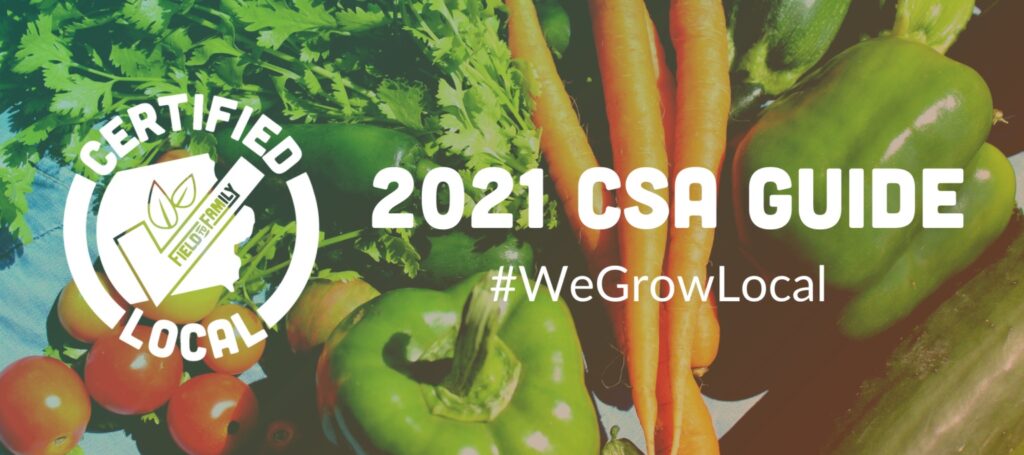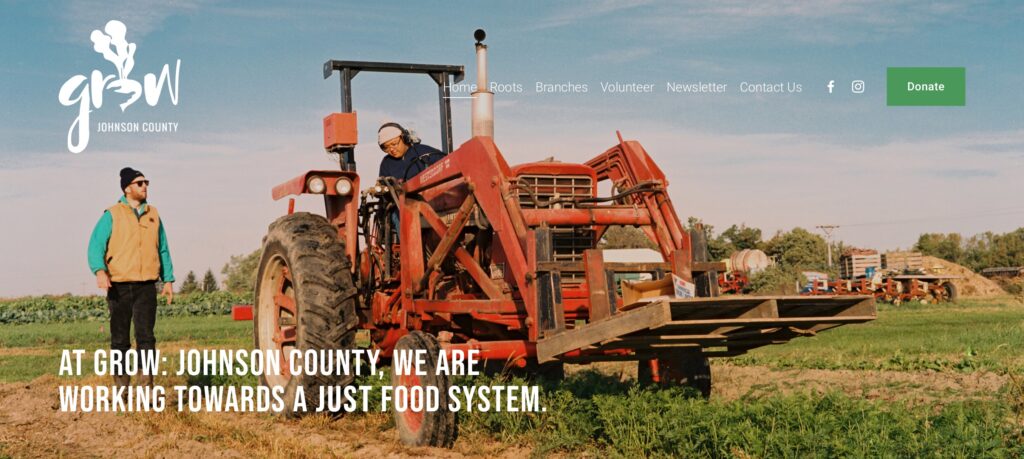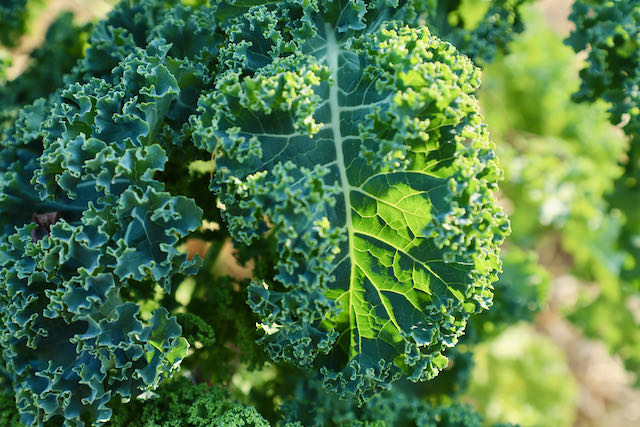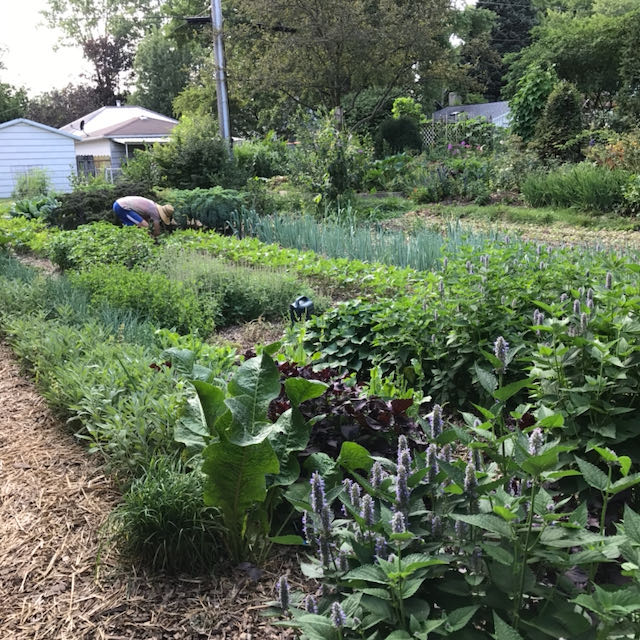Introduction
Iowa City is a great place to discover inspiring examples of regenerative agriculture. This page offers a few examples, with a personal story at the bottom of the page about a local urban garden. This list of resources is in alphabetical order. Excerpts and links with more details are provided.
Backyard Abundance
“We envision the growth of resilient communities that meet everyone’s basic needs of survival today and in the future. Landscapes grow healthy food and natural materials to nourish our bodies and support our local economy. The land supports healthy ecosystems by providing habitat, creating clean water and emulating nature’s resiliency. This community focus creates a healthy social fabric, ecological integrity and a spirit of abundance for all.” [More]
Community Garden Plots
“Renting a community garden plot is a great way to get outside, meet your neighbors, and grow your own food!” [More]
CSA Guide for Iowa City and Eastern Iowa
“Are you curious about Community Supported Agriculture? Our 2021 CSA Guide is here to help you learn about CSA farms in Johnson County, Linn County and surrounding areas. CSAs work like this; at the start of the season, customers purchase a “share” of a farm’s bounty, typically for a few hundred dollars. The farmers are able to plant their seeds knowing their costs are covered, and the customers are guaranteed a variety of fresh, in-season produce every week for the duration of the season. Signups usually happen in the winter and spring for summer and fall shares. For customers, a CSA can provide encouragement to try new foods, eat a LOT of seasonal fruits and veggies and create a more intimate connection with a local grower. Many farmers find this model to be more secure than selling produce à la carte at markets. If one crop blooms in abundance, they know there’s a market for what they have to offer. Likewise, if another crop is damaged after months of hard work, their members’ up-front financial support will help soften the blow.” [More]
- Abbe Hills Farm [ Website | Facebook ]
- Bountiful Harvest Farm [ Website | Facebook | Twitter ]
- Buffalo Ridge Orchard [ Website | Facebook | Twitter ]
- Cultivate Hope Urban Farm [ Website | Facebook ]
- Echollective Farm [ Website | Facebook ]
- Garden Oasis Farm [ Website | Facebook ]
- Iowa Grown Market [ Website | Facebook | Twitter ]
- Jupiter Ridge Farm [ Website | Facebook ]
- Kroul Farms [ Website | Facebook | Twitter ]
- Local Harvest CSA [ Website ]
- Millet Seed Farm [ Website ]
- Morning Glory Farm [ Website ]
- Rainbow Roots Farm [ Website ]
- Trowel & Error Farm [ Website ]
- Walker Homestead Farm & Winery [ Website | Facebook ]
- Wild Woods Farm [ Website | Facebook ]

Field to Family
“Field to Family works to create a more local, healthy and sustainable food system. We envision a region where people eat with the seasons, where farmers make a living, and our ecosystem is diverse, abundant, and healthy.” [More]
Grown Johnson County
“We believe that a just food system needs more growers. In particular, we seek to train growers that are unrepresented in the food system, to build a more inclusive, equitable future. Our educational initiative, Beyond Rootimentary, has opportunities for all ages, experience levels, and interests. Whether you want to become a backyard gardener, want to learn more about sustainable agriculture, are dreaming of starting a farm, or just enjoy looking at bugs and flowers, we are here for you.” [More]

Prairie Hill
Prairie Hill is a co-housing neighborhood of small cottages and homes in Iowa City. They have their own garden to produce food for their community meals and gatherings. Below is a photo of arugula in their garden. [More]

Scattergood Organic Farm, Livestock, Prairie, and Pond
“Our certified organic farm provides over 140 varieties of fruits and vegetables for our dining hall… Students’ farm involvement can range from a little: participating in one or two all-school work and harvest days per year, starting the year with our interdisciplinary 3-week Farm Term, and enjoying delicious farm-to-table meals… or a lot: creating original scientific research projects, enrolling in Farm Project classes and volunteering during free time and weekends. … Scattergood has over 26 acres of restored prairie which students use for hiking or cross-country skiing during free time and as a laboratory and studio during science and art classes. Prairie Management class assists faculty in an annual prairie burn which helps to maintain grass vitality, control invasive plants and supress established trees and bushes. This class also identifies and removes invasive species, catalogs new species and tackles other related hands-on projects.” [More]
University of Iowa Student Garden
Formed in Spring 2009, the 1/3-acre University of Iowa Student Garden provides an educational model that addresses environmental, social, cultural, and economical issues that affect our contemporary food system. [More]
Urban Greens
“With biology, environmental science, and global ag. resource studies at the University of Iowa in their back pocket, this crew has set up a pretty impressive hydroponic system in their house, and have all kinds of exciting expansion plans. Their first hydroponics efforts were actually in Haiti, building a hydroponic system for an orphanage where the soil was too poor for growing good vegetables. Here in Iowa we have excellent soil of course, but we don’t always have excellent vegetable growing weather, so they’re here to provide us beautiful greens, year-round! Stop by your Co-op to try out the new Lettuce Medley or Bold & Spicy Salad Mix from Urban Greens, and look for more varieties to come in the future!” [More]
The Millet Seed Farm

On 16 July 2017, I visited The Millet Seed Farm in Iowa City — a local urban community supported agriculture (CSA) operation run by Jon Yagla in the Longfellow Historic District neighborhood.
Imagine having heard a violin before, and an obo, and other instruments individually, but never having heard an orchestra. That’s what the experience was like seeing this urban CSA farm. I was suddenly immersed in and surrounded by things I’d seen individually but never working together like a symphony.
I’d seen farms before and I’d seen the produce section at the grocery store. I’d seen the trucks that move the food from the farm to the distributor to the warehouse to the grocery store. I was familiar with the traditional system of agriculture and business.
But before me was the farm and the grocery store in someone’s back yard… where they went to work each day.

I learned that managing the farm was a full-time job that produced a better-than-average full-time income.
In a moment I realized that this concept of urban farming was a solution to so many problems with so many positive impacts and outcomes:
- generating income for the farm owners and workers
- creating nutritious food
- helping people eat healthier and avoid some preventable negative health conditions
- providing exercise for those working the farm replacing unhealthy desk jobs
- improving the mindset of those who get to spend time outdoors with nature
- building community relationships
- stimulating the local economy
- addressing food scarcity and promote food justice
- improving the soil and air
- providing green urban infill to replace urban sprawl
- creating a bioswale and utilizing rainwater to help reduce flooding and runoff
- supporting pollinators so they continue to sustain life on earth
- creating cottage industries that eliminate commutes thus reducing automobile use, noise and air pollution
- establishing food as a local currency allowing anyone to basically grow money
The list continued expanding in my head. All of the above was happening on a small plot of land in someone’s back yard.
Small-Scale Agriculture and Minimalism
We have big homes because there are things we need, that we use to get other things, so we can go to work, to earn the money we need to use at the grocery store to buy food. It’s surprising how simple and minimalist a person’s life can be when their job is working on their own farm. Everything that had been between the farm and your dining table is eliminated.
For a short time when I was staying in Sebastopol, California, visiting a friend, I was lodging in a small-scale hand-made wooden shepherd’s wagon. In the morning for breakfast, after my walk, I would eat fresh fruit that had fallen to the ground overnight. It was cool and had dew on it. As I repeated this practice each day, I thought perhaps a person could live this way for an extended period of time. There’s a peaceful grounded simplicity that one finds the closer they are connected to nature.

For more on Farming visit ResourcesForLife.com/farming
